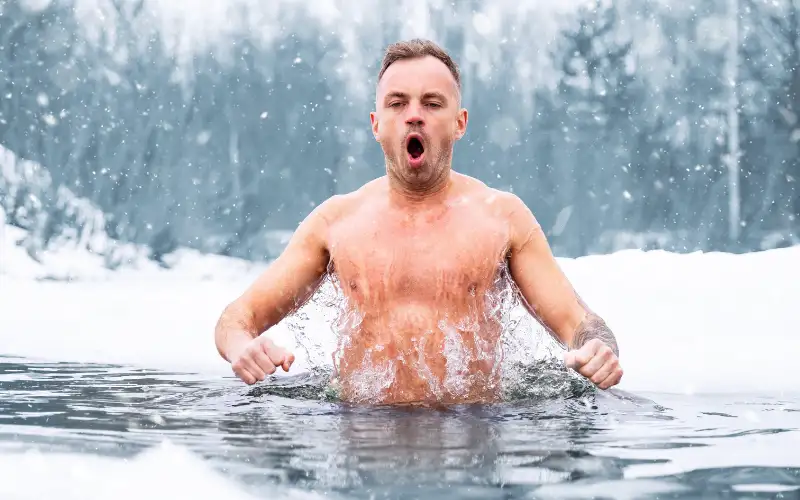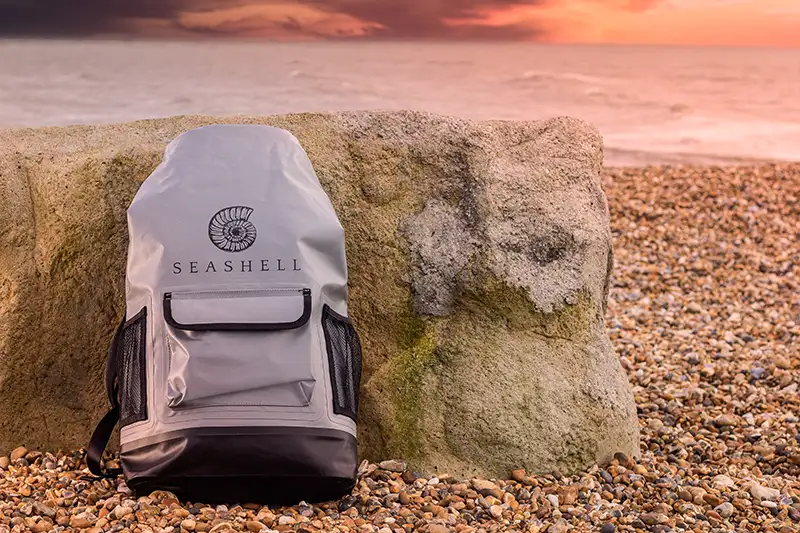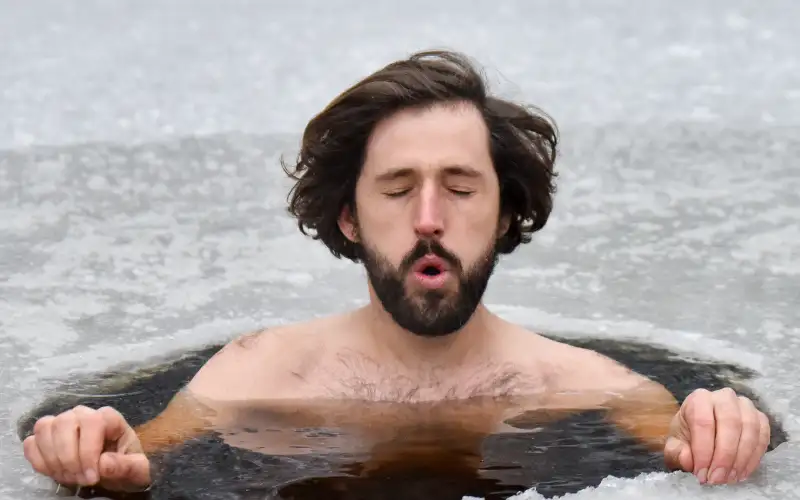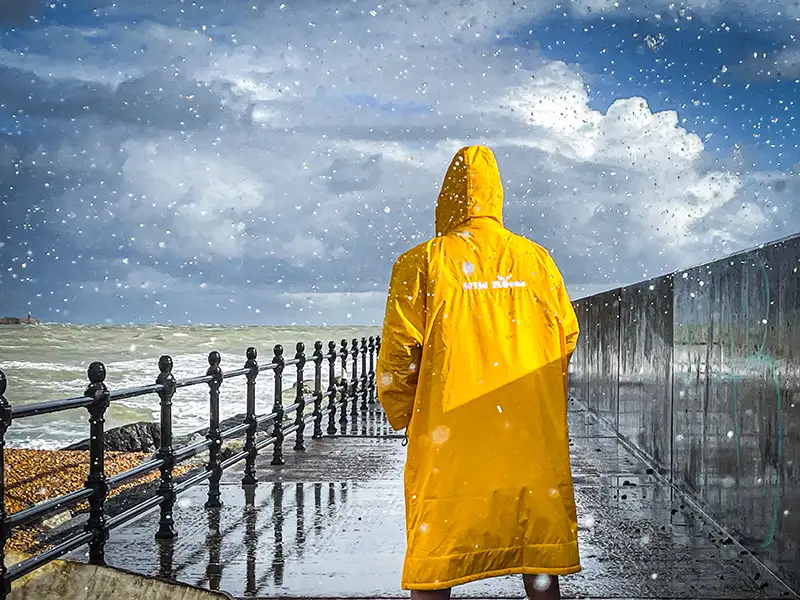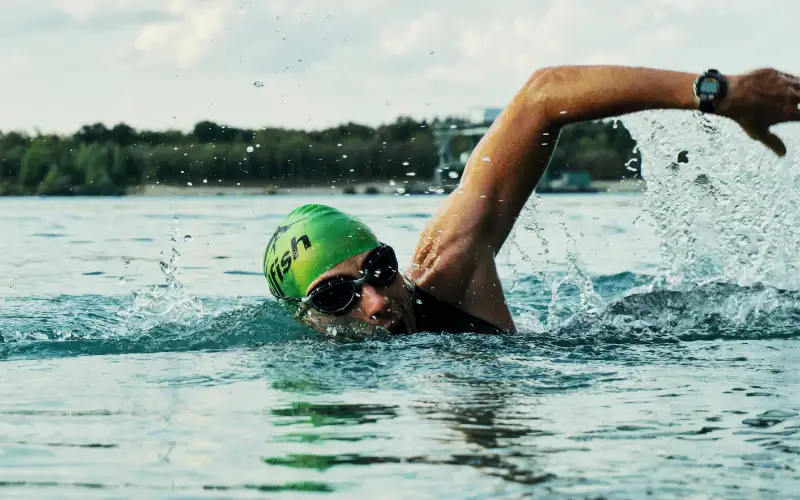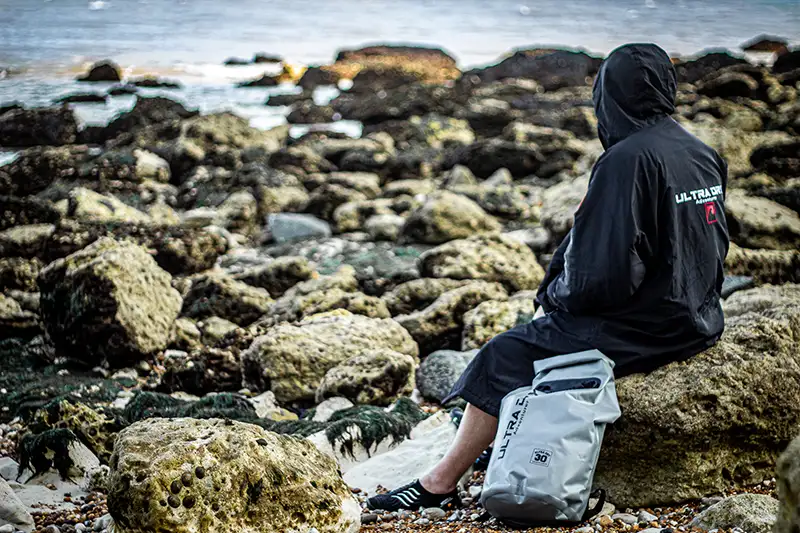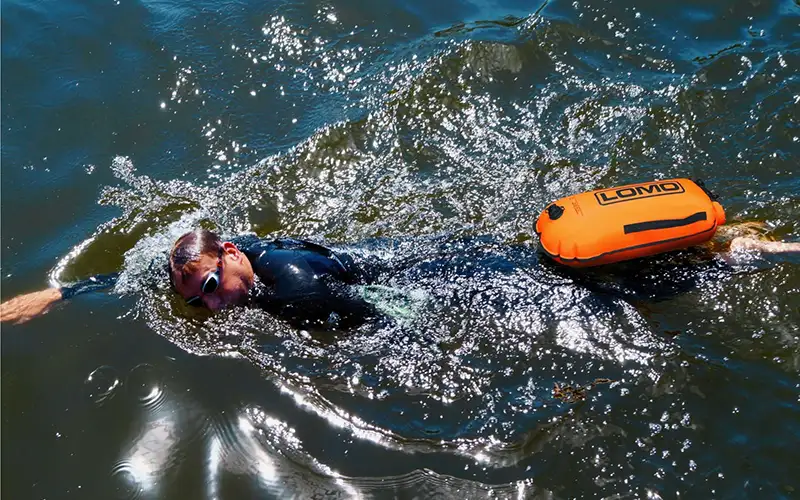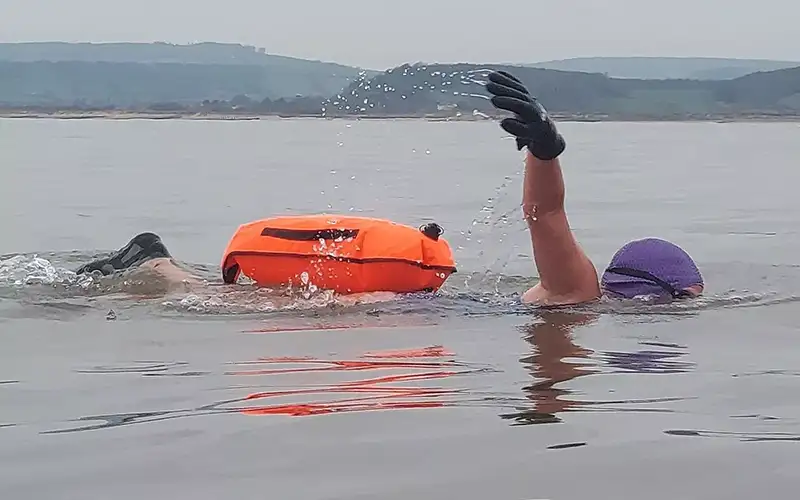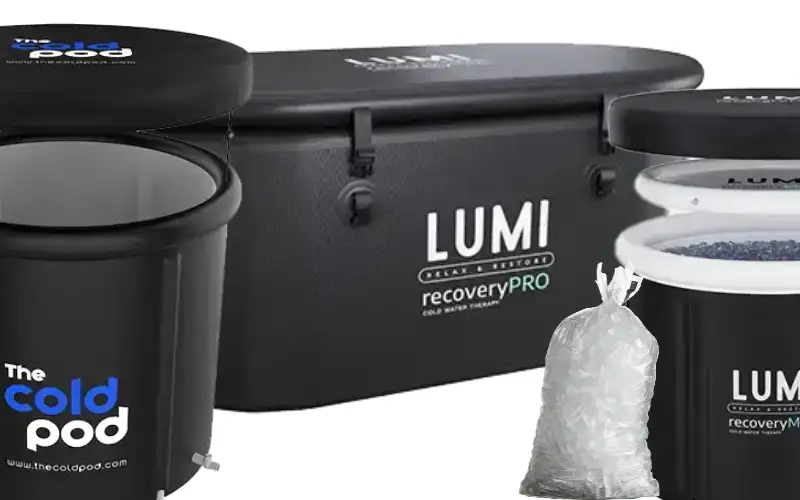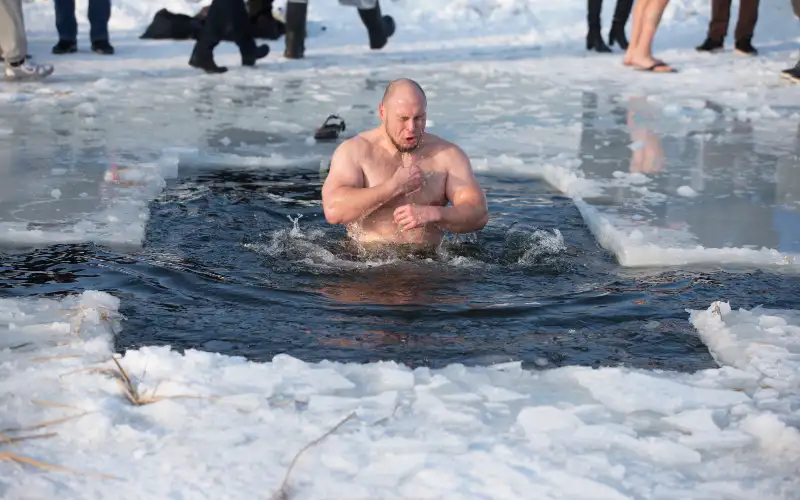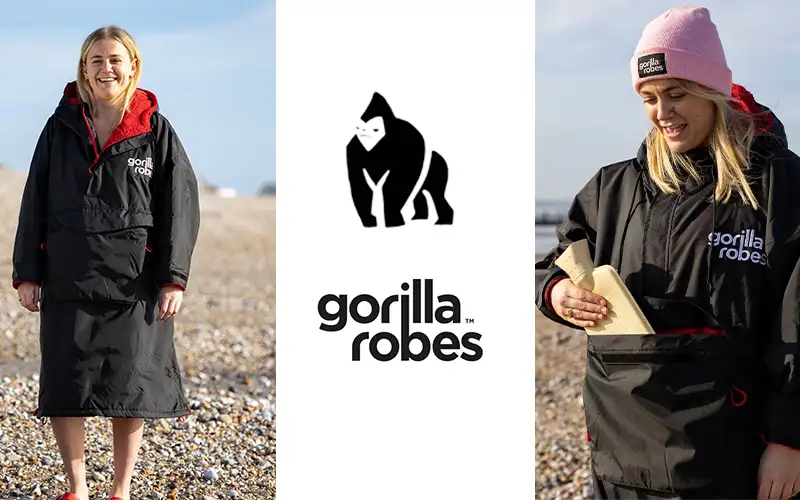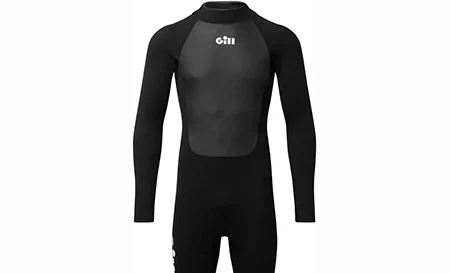I’m a big fan of cold water swimming, and I think more people should give it a try. It’s one of the healthiest things you can do for your body, and it’s also a lot of fun.
Check out our Top 5 Wetsuits For Cold Water Swimming >
There’s something very calming and spiritual about being submerged in cold water that connects me to the world around me. I’m reminded of how small I am compared to the vast expanse of ocean. When I swim in the sea close to my house, the cold touches every part of my body, it’s an incredible feeling, and it makes me feel alive.
I’ll never forget the first time I swam in cold water. It was a cold autumn morning, and the sea was choppy, with a strong wind blowing. The sun had just begun to rise, and I was about to get into the water. Apprehensive, I hesitated for a moment before finally plunging in.
The cold hit me like a brick wall and my whole body tensed, as if I was being stabbed by tiny pinpricks on every inch of my skin. But then a few moments later, everything slowed down. I took a few deep breaths, mostly involuntarily, and everything felt calm and peaceful. From that moment on, I was hooked.
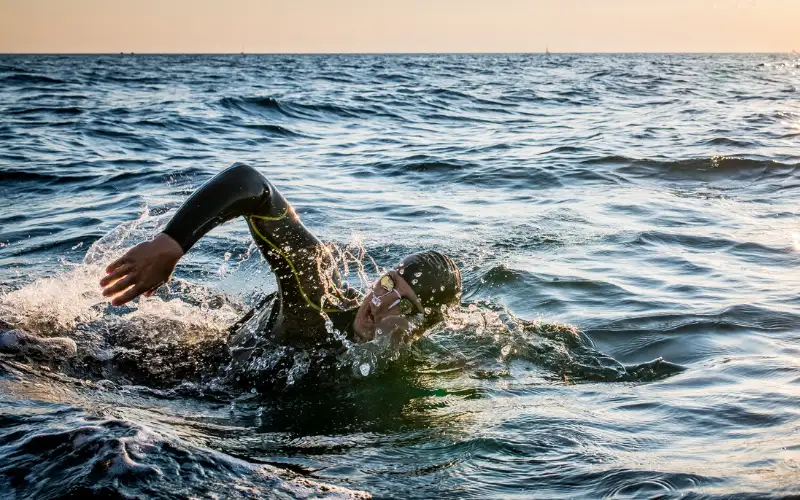
Swimming in cold water is great for your health. It strengthens your immune system, improves circulation, and helps you lose weight. It’s also a great way to reduce stress and anxiety.
One thing I really like about cold-water swimming is that it’s a great way to challenge yourself. It takes a lot of courage to jump into cold water, but it’s worth it! The feeling of accomplishment you get after completing a swim is amazing.
If you’re not sure whether or not you want to try cold-water swimming, I recommend checking out Wim Hof. He’s a world-famous extreme athlete who swears by the health benefits of cold exposure therapy. He even has his own method called “The Wim Hof Method.”
Wim Hof is famous for his ability to withstand extreme conditions. He has climbed Mount Everest wearing nothing but shorts and shoes, and he has also swum across the icy waters of the Arctic Ocean without getting hypothermia.
And if you do go cold-water swimming, make sure you invest in a Dryrobe, or a Dryrobe alternative for when you get out of the water. Trust me, they are invaluable!
Enjoy Cold-Water Swimming?
Don’t forget to have something to warm up with when you get out. Dryrobe waterproof changing robes are great, but they can be expensive. Check out our Dryrobe alternatives here >>
Is swimming in cold water good for you?
Cold water swimming is something everyone should experience, and it has a host of health benefits. Here are 9 cold water swimming benefits.
1. Cold water swimming can give you a natural high
Cold-water swimming can create a natural high that is unparalleled. The combination of the cold water, exercise and release of endorphins makes for an incredible feeling. Endorphins are naturally occurring hormones that act on the nervous system to reduce pain, stress and anxiety. When released, they create a sense of euphoria and well-being, making cold-water swimming an excellent way to fight depression or just relax.
Endorphin levels increase when we’re in pain, which helps our bodies cope with the discomfort of cold water swimming. In studies, scientists found that participants who swam in cold water had significantly higher levels of endorphins than those who simply stayed in the warm water. This suggests that cold-water swimming really does help us create a natural high through releasing these feel-good hormones.
2. It’s a great way to challenge yourself and push your limits
Another factor contributing to this feeling of euphoria is the challenge of pushing past our physical limits while swimming in cold water. It takes a lot of mental strength and courage to jump into icy waters but it’s incredibly rewarding when you do it. Testing ourselves in this way helps us build confidence and resilience, which can provide a long-lasting boost to our mental health.
3. Swimming in cold water can improve your immune system
Swimming in cold water can have a range of positive effects on our immune system. Studies have shown that cold water can help to boost white blood cell counts, which are responsible for fighting infection and disease. This is because cold water forces the body to react to changing conditions and become better at activating its defences.
Cold water causes a protective response within the body, known as cold-induced immunostimulation (CIIS). Through this process, the body releases more cytokines – proteins that regulate the immune system – into circulation. As well as increasing our resistance to infection, regular cold water swimming can also reduce inflammation and increase energy levels by stimulating the release of adrenaline.
4. Cold-water swimming reduces inflammation
Cold-water swimming has been found to reduce levels of inflammation throughout the body, leading to better health outcomes overall. A study conducted by Harvard Medical School showed that cold water exposure was effective at reducing inflammation caused by allergies or asthma attacks; this suggests that regular cold-water swimming could help alleviate symptoms associated with these conditions over time.
Other studies have looked into how cold water swimming affects allergy sufferers. It has been found that cold exposure can reduce inflammation caused by allergies and even alleviate symptoms such as coughing or sneezing. Swimming in cold water has also been shown to strengthen the muscle around our airways, which can help us breathe easier and prevent asthma attacks from occurring.
Overall, cold-water swimming is an excellent way to improve our immune health. It helps to activate our natural defences against disease and illness, whilst providing other benefits such as increased energy levels and improved mental clarity. Regular cold-water swimming is a great way to stay healthy and active all year round.
5. Cold-water swimming is a great way to reduce stress and anxiety
Cold-water swimming can be an excellent way to reduce stress and anxiety. Studies have shown that cold water has a calming effect on the body and mind, with regular cold-water swimmers reporting feeling more relaxed and serene than before. This is because cold water activates our parasympathetic nervous system, which slows down our heart rate, lowers blood pressure and relaxes the muscles.
As well as this physical relaxation, cold water swimming can also provide psychological benefits. Swimming in cold waters can open us up to new experiences, challenge us to step out of our comfort zone and push past our limits. By doing this, we are able to build confidence, resilience and self-assurance which in turn helps alleviate stress and anxiety.
In addition to this, cold-water swimming can lower cortisol levels in the body. Cortisol is a hormone that is released when we experience stressful events or situations; if these levels become too high they can lead to physical symptoms such as headaches or fatigue. Cold water exposure causes a decrease in cortisol production by activating the hypothalamic–pituitary–adrenal axis (HPA axis), thus reducing feelings of stress and anxiety.
The cold temperature of cold-water swimming creates a unique environment for the brain; one where we can disconnect from everyday worries and focus on the present moment instead. Studies have found that swimming in cold water can help people become more mindful due to its calming effects on both the body and mind. This form of mindfulness has been linked with improved mental health outcomes such as reduced stress levels and increased wellbeing overall.
6. Swimming in cold water is a great way to lose weight and get in shape
Cold-water swimming is a great way to lose weight and get in shape. There are several ways cold water can help with weight loss. Cold water stimulates the body’s metabolism, making it burn calories more efficiently. Additionally, cold water activates the release of norepinephrine, which helps break down fat cells and boost your overall calorie-burning capacity. This means cold-water swimming can help you get into shape faster and more effectively than other forms of exercise.
What’s more, cold water can also make you feel fuller for longer, as it lowers your appetite by suppressing ghrelin – the hunger hormone – and increasing levels of leptin – the hormone that tells the brain when we are full. Swimming in cold water has been found to be particularly effective at reducing abdominal fat due to its ability to decrease hunger hormones in this area.
Not only that, but cold-water swimming also causes our bodies to shiver; this is a response to cold temperatures which uses energy and burns calories in order to generate heat. In fact, a study conducted by Harvard Medical School found that shivering during cold-water swims can burn an extra 420 calories over an hour! Not only will this help with weight loss, but it will also keep you warm in cold climates.
Finally, cold-water swimming has been shown to increase muscle mass due to its effect on collagen production; increased collagen production helps build muscle tissue which can lead to increased strength and endurance. It also increases bone density through its effects on calcium absorption, meaning cold-water swimmers are less likely to sustain fractures or injuries from high impact exercises such as running or jumping.
Cold-water swimming is an ideal form of exercise for those looking for an effective way to lose weight and improve their overall health and fitness levels. With its combination of calorie burning power and its ability to reduce appetite while increasing muscle mass and strength, cold-water swimming is a great way reach your fitness goals quickly and safely.
7. It’s a great way to improve your circulation and cardiovascular health
Cold water swimming is an excellent way to improve your circulation. In cold water, the body’s cardiovascular system responds by rapidly constricting the blood vessels, trapping and pushing more oxygenated blood around the body. This improved circulation helps to keep our organs functioning properly and keeps our cells healthy.
The cold temperature also triggers the release of a hormone called epinephrine or adrenaline. Epinephrine works to dilate our blood vessels, and increase heart rate. This increased heart rate helps to deliver more oxygen to all parts of the body and increases our blood pressure. Increased blood pressure helps nourish our muscles with oxygen and nutrients for improved physical performance during exercise.
Not only does cold-water swimming improve our overall cardiovascular health, but it can also benefit those with conditions such as Raynaud’s disease or poor circulation in their hands and feet. Cold water immersion has been found to significantly improve symptoms associated with this condition by stimulating the flow of warm blood throughout extremities—preventing cold fingers and toes from becoming numb or painful due to cold temperatures.
Also, cold water causes an increase in red blood cell production which carries vital oxygen around the body. Having enough red blood cells ensures that your organs are receiving enough oxygen for them to work efficiently; this helps prevent fatigue and sluggishness due to lack of oxygen supply in our bodies which can cause us to feel tired or weak during exercise or activities.
8. It can improve your libido
Cold-water swimming has been found to have a range of beneficial effects on libido. Studies have shown that it increases the production of testosterone and oestrogen, two hormones which are key in regulating sexual desire and performance. This increase in hormone levels can help boost libido. It has also been found to improve circulation, which is vital for achieving healthy erections.
In addition, cold-water swimming has a calming effect on the body and mind due to its endorphin-releasing properties. Endorphins act as natural painkillers and mood enhancers, helping us feel more energised and positive while reducing stress hormones such as cortisol. This can make us feel more relaxed and confident, both of which are important factors when it comes to creating an enjoyable experience during sexual activities.
Finally, swimming in cold water improves our ability to regulate body temperature; this lets us maintain a comfortable temperature during sex without having to worry about overheating or feeling cold afterwards. Furthermore, cold water triggers the release of antidiuretic hormone; this helps regulate blood pressure by constricting your body’s blood vessels and ensuring your organs get enough oxygen even in cold temperatures. This increased oxygen supply is essential for optimal sexual performance by providing energy to all parts of the body including reproductive organs.
9. It’s an excellent way to socialise
Cold-water swimming is a great way to socialise and bring people together. It’s an activity that requires both physical and mental strength, which is something that can be shared and celebrated in a group setting. It often gives swimmers the opportunity to meet like-minded people who also enjoy cold-water swimming, creating a sense of community and camaraderie.
Group cold-water swims are also an excellent way to connect with nature, as you share the experience of cold water temperatures with other swimmers who have the same fascination for cold waters as you do. This connection with nature helps bring people closer together and encourages meaningful conversations between swimmers. Additionally, cold water swimming can help strengthen relationships within a group or family as it encourages all members to come together, face challenges side by side, and celebrate each other’s successes.
Furthermore, there is ongoing research into the effects of cold-water swimming on menopausal women; early results suggest that it could reduce symptoms such as hot flashes and night sweats due to its ability to regulate body temperature. Although difficult to prove definitively that cold-water swimming is what causes these positive effects, the combination of socialising while exercising will certainly have an overall beneficial effect.
The dangers of cold water swimming
Safety should always be a top priority when cold-water swimming. The cold temperature can be very dangerous and damaging for the body if not respected with due care. It is important to be aware of the risks and understand how cold water impacts your physiology, so that you can stay safe while enjoying cold water swimming.
Cold water swimming can be a great way to stay active and reap the many benefits associated with cold water immersion. Swimming in cold water can be a thrilling experience, but it is important to remember that cold water temperatures present unique risks and require taking extra precautions.
First and foremost, cold-water swimmers should always consult with a medical professional before beginning cold water swimming. It is especially important for anyone with existing medical conditions such as heart disease or diabetes to check in with their doctor before embarking on cold-water swimming sessions. Additionally, if you are new to cold-water swimming, or have not been immersed in cold waters for some time, it is important to start by taking shorter swims so that your body can acclimatise slowly to the cold temperature.
When out swimming in cold waters, it is essential that you wear the right equipment. Wearing cold water swimming gear like a wetsuit and/or neoprene hood will help keep your body insulated from the cold. Additionally, wearing a brightly coloured hat makes you more visible to other swimmers and rescuers, which can help prevent any accidents or emergencies. Goggles are also recommended as they allow you to see clearly underwater and can protect your eyes from the cold temperatures and possible irritants found in open-water environments like seaweed or algae. And we highly recommend a Dryrobe, or a Dryrobe alternative, for when you get out of the water
Always swim with other people whenever possible; never assume that because someone else is present in the area that they will be able to come to your aid should an emergency arise. Before venturing out into cold waters it is advisable to let someone know where you will be swimming and what time you intend on returning so that if something does go wrong help can be sent quickly. Additionally, practice basic safety principles such as staying within designated areas.
When cold-water swimming, it is essential to know your limits and take regular breaks in order to avoid potential cold-water shock. Cold-water shock occurs when your body’s reflexes shut down due to the cold temperature of the water; this can lead to gasping for breath or even drowning if you are not careful.
For novices, it is recommended to start off with shorter swims so that your body can slowly acclimatise instead of jumping straight into longer swims. Additionally, use wetsuits or drysuits when possible for extra insulation from the cold temperatures. Be aware of the dangers posed by hypothermia as well – if you notice any signs such as shivering, confusion, or loss of coordination, get out of the water immediately and seek medical attention.
Cold-water swimming can provide an amazing experience when done with caution and proper preparation; however, it is important to recognise that there are risks involved when going into cold waters and take necessary safety measures before participating in cold-water activities.
